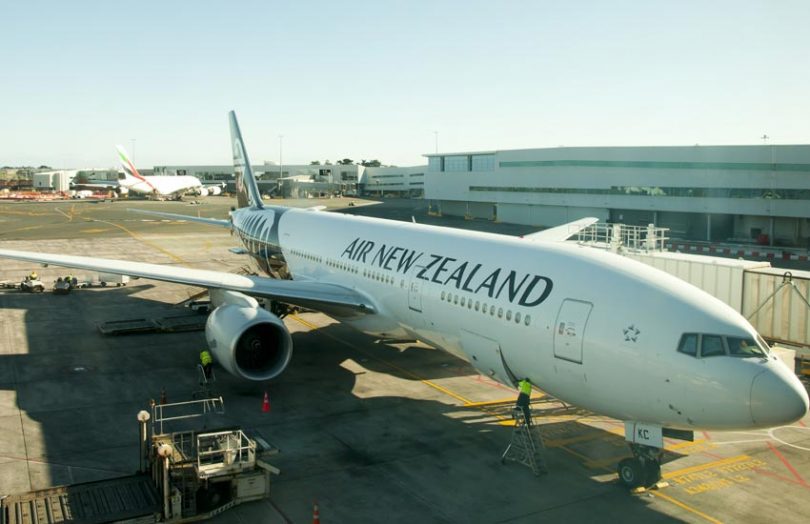Air New Zealand has trialed a blockchain system from aircraft-parts maker Moog. The solution supplied a 3D-printed replacement part for a flight from Auckland to Los Angeles, The Wall Street Journal (WSJ) reported yesterday.
Moog’s system uses a combination of blockchain and 3-D printing to expedite the parts replacement process and comply with aviation regulations by ensuring it’s an approved design.
“The idea is that I’m going to stock those parts digitally and turn them into physical goods when I need them,” said George Small, the CTO of Moog told the WSJ. The firm achieved $2.9 billion dollars in sales for 2019.
The aircraft parts supply chain is complex and relies on paperwork. Although the invention of 3-D printing substantially reduced the manufacturing time of the parts, the procurement process is still the same. Moog is targeting this with its VeriPart solution.
Blockchain maintains the integrity of a replacement part, by enabling traceability of the design, materials used and manufacturing partners involved. This reduces the chances of counterfeiting by ensuring that a part was made according to the original manufacturer’s design. Beyond counterfeiting, it’s conceivable that a 3-D model could be sent to a maintenance site, but en route is manipulated by a bad actor, with a risk to the aircraft.
Moog has developed a supply chain marketplace, VeriChain, powered by the VeriPart blockchain. This ensures that the aircraft parts are certified, intellectual property ownership is recorded, and that the component uses proper materials and manufacturing processes.
The idea is to make parts available on-demand, with all stakeholders communicating in real-time to speed up delivery.
Other blockchain activity
Earlier this year, GE Research built a blockchain solution for the 3-D printing supply chain. Even the U.S. Air Force is exploring blockchain applications for manufacturing traceability and has signed a deal with SIMBA Chain.
Beyond 3-D printing, Rolls Royce and SIA Engineering recently hosted a hackathon-style event to develop a blockchain solution for aircraft engine maintenance. And Honeywell Aerospace has a similar project where it uses blockchain to verify parts documents and images. The technology underpins its GoDirect Trade aircraft parts e-commerce portal.







